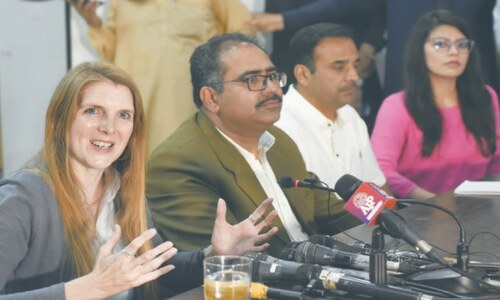ISLAMABAD: Since Pakistan came into being, the religious segment of society has been used by feudals, industrialists and other influential figures and they have always provided a definition of Islam that supports the elite while the poor have suffered, literary critic and scholar Prof Fateh Mohammad Malik said on Monday.
Mr Malik was speaking at an event on ‘Pakistan’s 71 years of Independence: Envisaging Future’ organised by the Sustainable Development Policy Institute (SDPI).
In support of his argument, Mr Malik gave the example of Mohammad Ali Jinnah, who announced agricultural reforms in a meeting of the Muslim League after Pakistan was created.
“The next day, a religious verdict signed by over a hundred religious scholars was published along with the news which mentioned that agriculture reforms were against Islam,” he said.
New govt should implement 1946 All India Muslim League manifesto, prominent scholar says
“Later it was revealed that members of the agriculture reforms committee had gathered religious scholars. When the committee announced the reforms, only East Pakistan implemented them and the provinces of West Pakistan refused. The same thing is going on to date, and our rulers don’t want to follow Quaid-i-Azam,” he said.
The same thing happened in 1949 with Liaquat Ali Khan’s slogan for bread, clothing and shelter, which could not be implemented, and again with Zulfikar Ali Bhutto.
Mr Malik said: “A number of authors have claimed that the US wanted to hold elections under the 1956 Constitution but Gen Ayub went to the US and asked the Central Intelligence Agency not to hold elections because civilians would not serve the US better during the Cold War. Zulfikar Ali Bhutto wrote in this book that after joining the cabinet he learned that all of Pakistan’s decisions were decided in the US.”
Mr Malik said that when Jinnah inaugurated the State Bank of Pakistan (SBP) he said he did not want a capitalist system, and a research cell was established in the State Bank to analyse what kind of financial system was needed.
“However after Quaid-i-Azam’s death the SBP in its report informed that it had been decided to abolish the research cell because of financial issues,” he said.
He said Pakistan was ruled by the British Indian bureaucracy and the British Indian army, and they had never cared for the poor.
“I begin smiling when I think that an organisation, the Anjuman Tahafuz Haqooq Zamindaron Tehat Sharia chaired by Nawabzada Nasrullah Khan was established to protect the rights of farmers. Prominent feudals were members of the organisation,” he said.
In response to a question, Mr Malik said it was a positive thing that new public representatives have taken oath in the third consecutive transition.
“I suggest that the new government should have good relations with all countries. It should implement the manifesto of the All India Muslim League of 1946; the manifesto stressed land reforms and the uplifting of the poor.
“Unfortunately, some governments in Pakistan banned discussion about that manifesto even in public meetings. The new government should find the manifesto and implement it,” he said.
Replying to a question about Independence Day, Mr Malik said every Independence Day a debate starts about whether Jinnah was secular or liberal.
“We need to think about what he wanted from us rather than what he was and how he should have been,” he remarked.
Published in Dawn, August 14th, 2018














































Dear visitor, the comments section is undergoing an overhaul and will return soon.